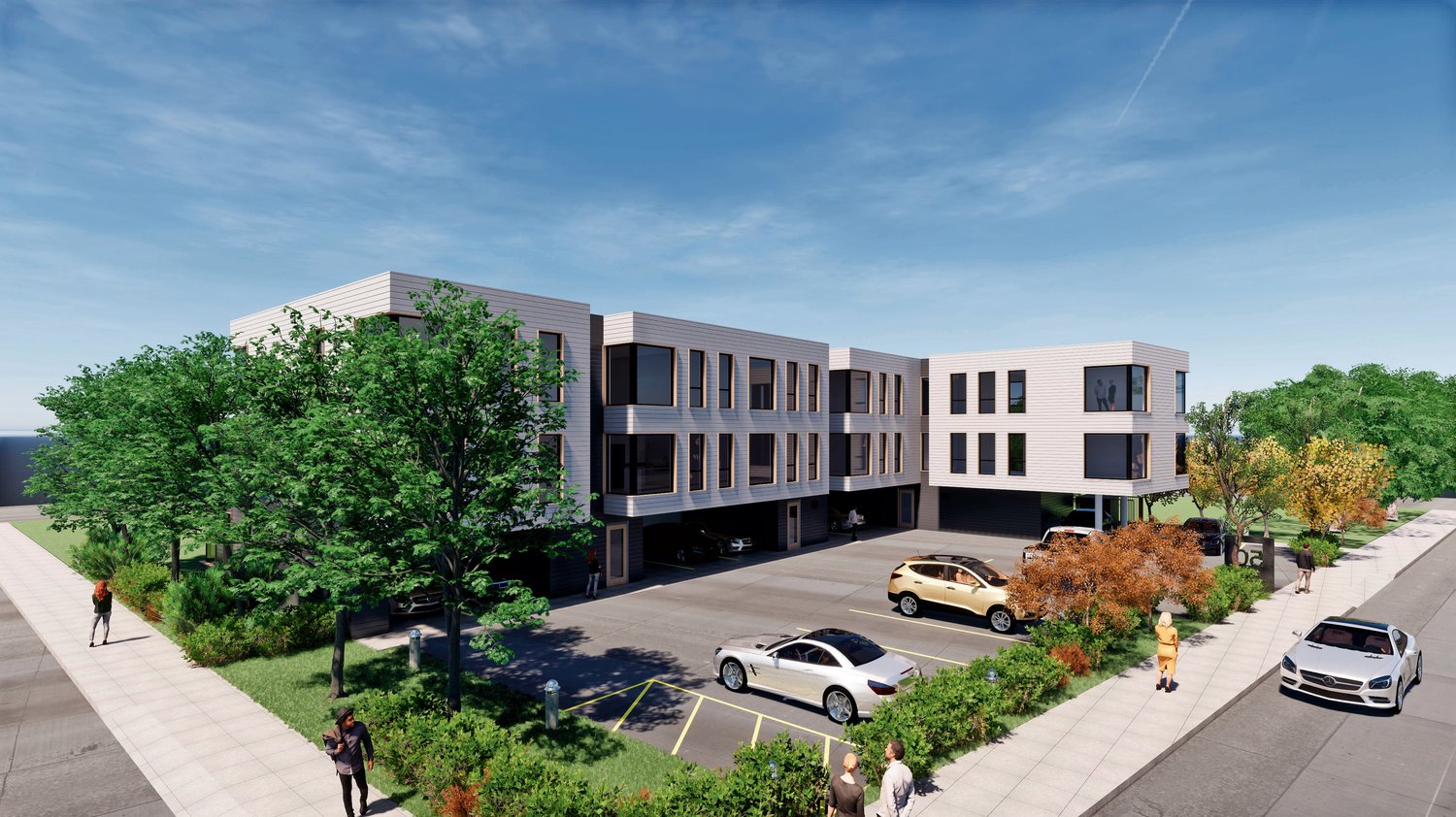Officials, residents discuss Roosevelt Apartments tax breaks

Residents and school officials voiced reservations about tax breaks, including a 14-year payment in lieu of taxes agreement, that the Town of Hempstead Industrial Development Agency is considering for a proposed 17-unit luxury apartment building slated for the corner of Roosevelt Avenue and Cochran Place.
At a July 14 hearing, two residents and officials for Valley Stream District 24, in which the proposed development would be located, and the Central High School District weighed in, either in opposition to or with questions about the proposed tax breaks, while the developer and his attorney offered some additional information.
It is latest development in the apartment proposal, whose various iterations have been making their way in fits and starts through county and village planning agencies over the past year and a half. In addition to a PILOT agreement, the applicant, Vantage on Roosevelt LLC, is seeking sales and mortgage recording tax exemptions.
Perhaps the most vocal opposition to the proposed development, and the tax breaks, came from School District 24 Superintendent Dr. Don Sturz, who raised concerns about potential school overcrowding and lost revenue in a time of deep economic uncertainty.
“Any time a residential project comes up in Valley Stream, it’s always a concern,” Sturz said. “Our schools are already at full capacity, and these residential projects always have a potential to increase enrollment and thus costs.”
It costs on average $23,239 to educate a student in District 24, according to data compiled by the Empire Center for Public Policy, a government watchdog agency.
Depending on variables such as class size and the individual needs of the student, though, one or two additional children, Sturz said, could increase district expenses by “hundreds of thousands of dollars.”
“So it’s significant,” he said, “and that fact is important here because that’s potential for increase in costs while now we’re going to be talking about a PILOT which potentially interferes with our revenue.”
According to the PILOT schedule for the development, the property, now a parking lot, would pay $32,000 a year in taxes — roughly what is currently paid — and the taxes would rise annually after that until they reached $92,000 a year in the 15th year of the agreement.
“When it comes to a PILOT, there’s a lot that happens behind the scenes that you’re never quite sure about the equity amount that one is receiving,” Sturz said, “so that’s the concern for us.”
Additionally, he said, “Those payments are not coming in at the same payment rate as taxes.”
Of particular concern, Sturz noted, were discussions of tax breaks at “a time when public schools are now being warned of significant cuts to government aid” because of the coronavirus crisis.
He requested the town IDA not approve the deal.
Other speakers included Debra Cerqua, a resident who wondered how many children the project might bring to the neighborhood. At 17 units — five one bedroom and 12 two-bedroom apartments — she estimated the Roosevelt apartments would have around 20 children.
Dan Baker, an attorney from the East Meadow-based lawfirm Certilman, Balin, Adler & Hyman, representing the developer, said he anticipated roughly one or two children to live in the apartments at a time.
“We track not only apartment buildings in this village but throughout Long Island, and the standard and typical number of school-age children going into places like this is very small, if you keep them to one and two-bedroom units,” he said.
Cerqua inquired about the Promenade, a recently completed 43-unit apartment building on North Central Avenue, and how many children that project had brought.
Vassilios Kefalas, the principal behind both projects, reported that at full rental capacity, the Promenade had five children living there with their families.
In particular, Cerqua questioned the Roosevelt project’s cost-benefit analysis, which indicates that with the tax breaks, the apartments would bring $7.5 million in economic activity, including $5.7 million in revenue to “private individuals” over the course of the agreement.
“So when it says ‘private individuals,’ you mean everyone who lives in Valley Stream . . . what is that?” she asked.
Michael Lodato, the IDA’s deputy executive director, said the estimate is intended to represent “spin-off” activity, such as what residents and employees might spend in the neighborhood at shops and restaurants, although he said he was unsure how the $5.7 million figure was calculated, as the analysis was generated by third-party software.
Other speakers included Chris Shishko, an attorney for the Central High School District, who asked whether the schools would see a reduction in property taxes. They would not, Lodato said, and after the fourth year of the agreement, payments would gradually increase to what the property would normally pay in taxes.
Margaret Zydor, another resident, asked if the property owner would be allowed to grieve property taxes while under the agreement. Lodato said the developer could not.
The IDA has scheduled a vote on the proposal for July 23 at 9 a.m.

 41.0°,
Fair
41.0°,
Fair 



